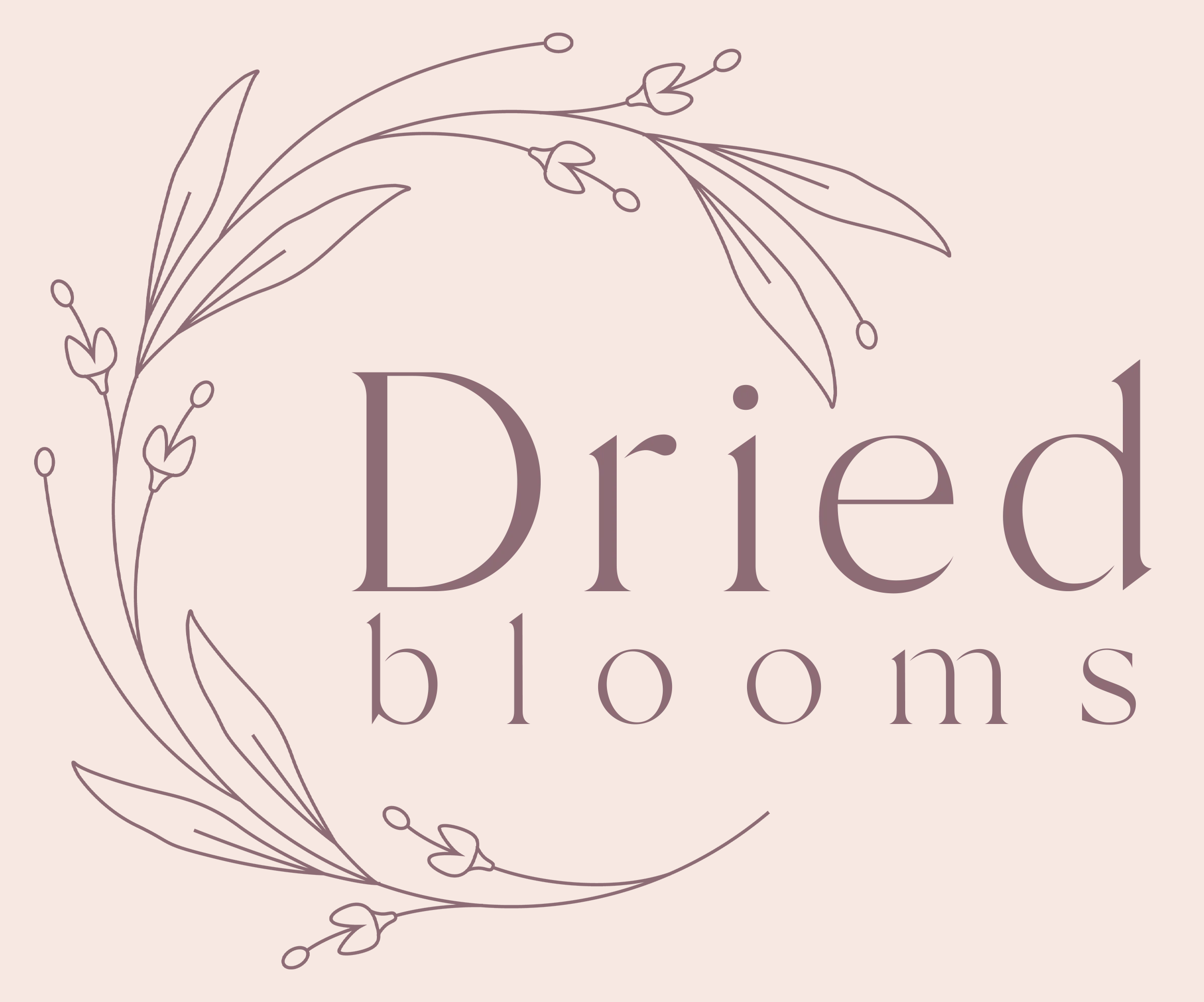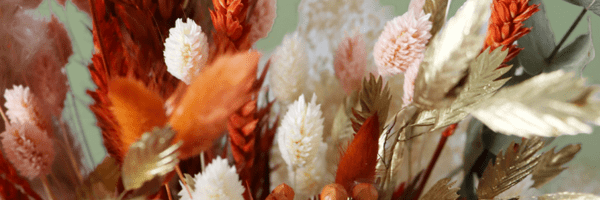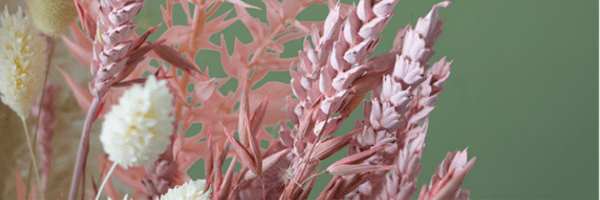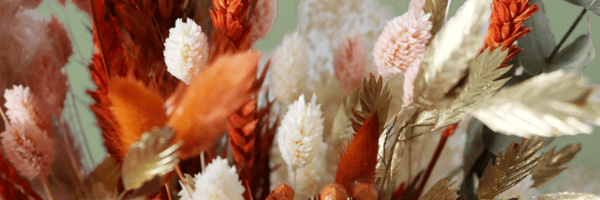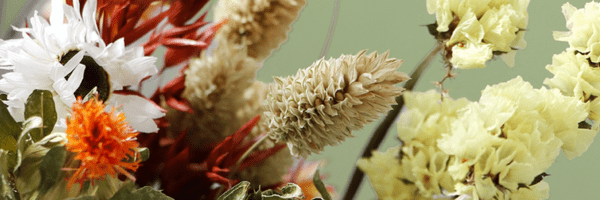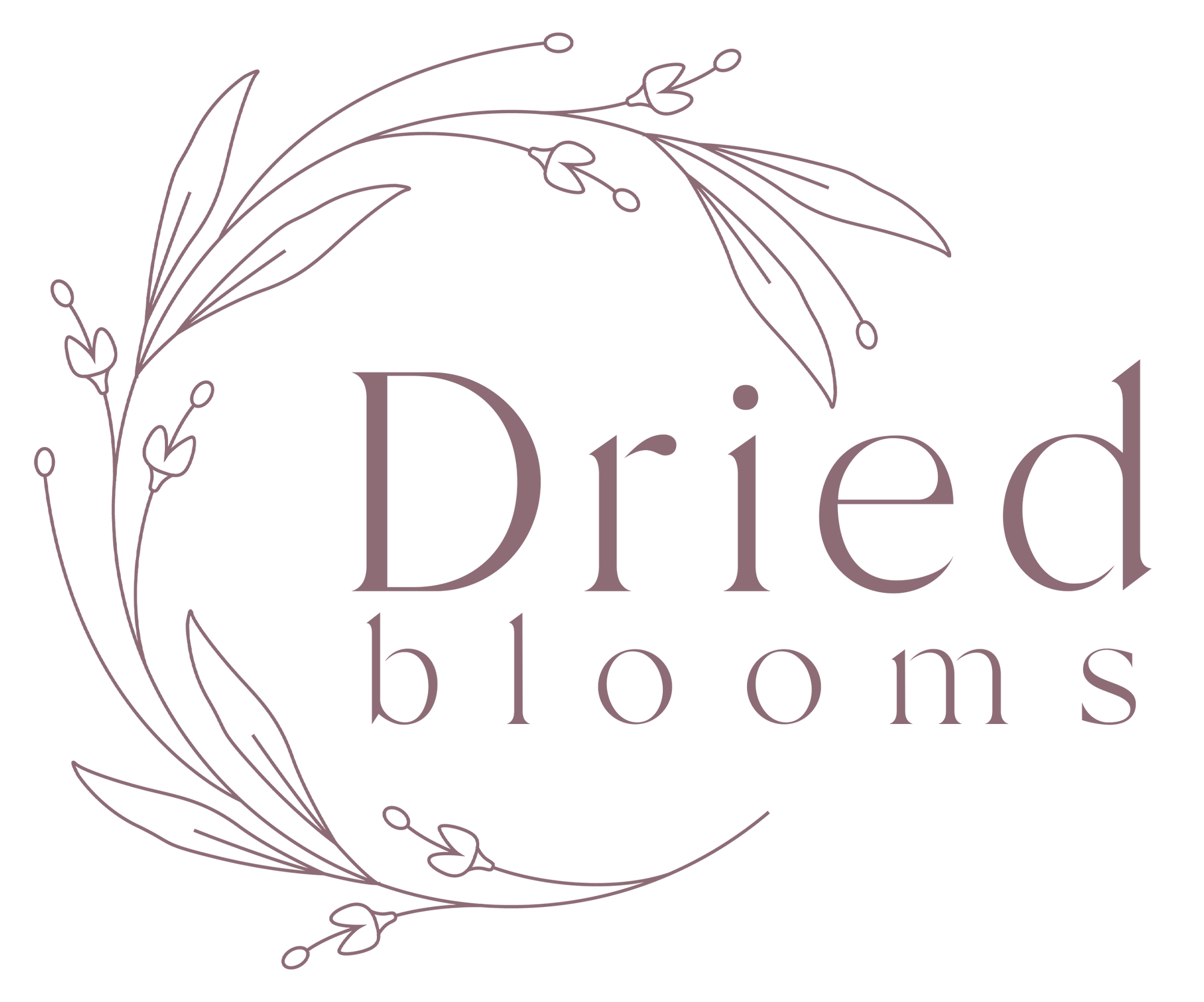Dried flowers have made a huge comeback in recent years — and for good reason. They’re beautiful, long-lasting, eco-friendly, and perfect for everything from home decor to gifts. But if you're new to the world of dried florals, you might be wondering: What exactly are dried flowers? How do they compare to fresh flowers? And how long do dried flowers last?
In this beginner’s guide, we’ll cover everything you need to know about dried flowers, how they’re used, and why they’re a popular choice — especially here in the UK.
What Are Dried Flowers?
Dried flowers are natural blooms that have been preserved by removing their moisture content. This process helps maintain their shape, colour, and beauty over time. Unlike fresh flowers, dried flowers don’t wilt or die quickly, making them an ideal long-term option for arrangements and displays.
There are several ways to dry flowers, including:
-
Air drying (the most traditional method)
-
Pressing
-
Silica gel drying
-
Microwave drying (for quicker results)
Why Choose Dried Flowers?
Dried flowers offer many benefits over their fresh counterparts:
-
Longevity: They can last for months — sometimes even years — with minimal care.
-
Low maintenance: No water needed and no drooping petals to clean up.
-
Eco-friendly: Dried flower arrangements can reduce waste and support sustainable living.
-
Timeless aesthetic: Their rustic, natural look suits modern, boho, and minimalist interiors.
-
Year-round availability: Seasonal blooms can be enjoyed all year round.
Popular Uses for Dried Flowers UK
Whether you're styling your home or planning a wedding, dried flowers are versatile and on-trend. Here are some popular uses:
1. Home Decor
From dried flower wreaths to centrepieces and vase displays, these florals can add warmth and texture to any space.
2. Dried Flower Arrangements
Professionally arranged dried flowers make gorgeous gifts or statement pieces for your home or office. Many florists now offer bespoke dried flower arrangements tailored to your style and colour palette.
One of our favourite dried flower arrangements is Lavande Éternelle!
3. Dried Flowers Bouquets
Looking for a long-lasting alternative to a traditional bouquet? A dried flowers bouquet is perfect for weddings, birthdays, and other special occasions — and it becomes a lasting keepsake.
4. Craft Projects
Dried florals are great for DIY projects like candles, resin art, handmade cards, and more.
How Long Do Dried Flowers Last?
One of the most common questions we get is: how long do dried flowers last?
The answer depends on how they’re stored and cared for, but in general:
-
Well-kept dried flowers can last between 6 months and 2 years.
-
Keep them out of direct sunlight, humidity, and wind to preserve their colour and shape.
-
Dust gently with a soft brush or hairdryer on a cool setting every few weeks.
With proper care, they’ll stay beautiful for a long time — no water required!
Where to Buy Dried Flowers UK
Looking to buy high-quality dried flowers in the UK? There are many independent florists and small businesses offering hand-picked, sustainable options. Whether you're after a dried flowers bouquet for a loved one or a unique arrangement for your home, you’ll find a wide variety of choices online or in local artisan shops.
(Tip: Always look for UK-grown or ethically sourced blooms to support local and sustainable growers.)
Final Thoughts
Dried flowers are more than just a passing trend — they’re a sustainable, stylish, and versatile alternative to fresh blooms. Whether you’re decorating your home, creating a dried flower arrangement, or gifting a bouquet, they offer lasting beauty with minimal fuss.
If you’d like to see an elegant example of a timeless arrangement, check out Lavande Éternelle - a beautifully curated dried flower bouquet that embodies rustic charm and natural elegance.
Ready to explore the world of dried flowers? Browse our latest collection of handmade dried flower bouquets and arrangements — lovingly curated right here in the UK. Visit our homepage to discover more about our full range and seasonal favourites.
FAQs
1. How long do dried flowers last?
Up to 2 years with proper care (away from sun, humidity, and handling).
2. Can I make dried flowers at home?
Yes! Try air drying, pressing, or using silica gel for best results.
3. Are dried flowers eco-friendly?
Absolutely — they use no water, produce less waste, and can be reused.
